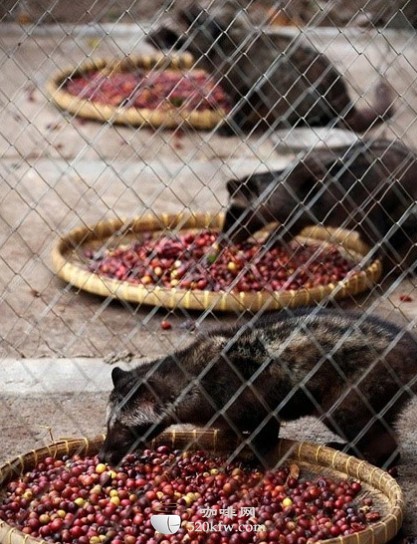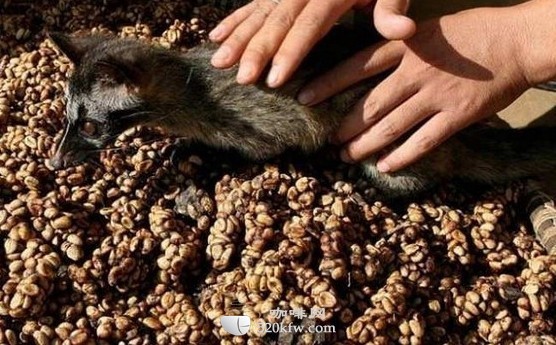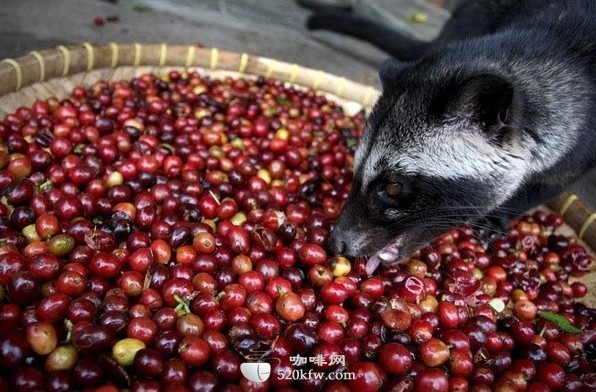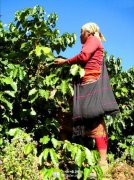Chinese civet coffee

Tasting civet coffee in Indonesia is a luxury. Because Indonesians can sell civet coffee at a good price.
It is inconceivable to taste civet coffee in China. Because there is no civet coffee in China at all. Moreover, as a tea-drinking country, in a tea-drinking city, we are proud of having tea. Few people know about civet coffee, and no one knows that this civet coffee is made from civet droppings. In addition, the high price of civet coffee is often daunting.
Muscat Coffee (Kopi Luwak), Kopi (Indonesian, coffee), Luwak refers to a kind of arboreal wild animal commonly known as "civet" in Indonesia. Civet coffee is the most expensive coffee in the world, with a price of several hundred US dollars per pound. It is extracted from the feces of the civet and processed. The civet eats the ripe coffee fruit and is excreted through the digestive system. Due to the fermentation of the stomach, the coffee produced has a special taste and has become a hot item in the international market.
Luwak likes to choose the most ripe, sweet, juicy coffee fruit in the coffee tree as food. The coffee fruit passes through its digestive system, digesting only the pulp on the outside of the fruit, and the hard coffee beans are then excreted intact by Luwak's digestive system. This digestion process, so that coffee beans have an unparalleled magical change, the flavor tends to be unique, the taste is particularly mellow, rich and round sweet taste is also unmatched by other coffee beans. This is because Luwak's digestive system destroys the protein in the coffee beans, making the coffee much less bitter due to the protein, but adding to the round taste of the coffee beans.
Because wild Luwak is obviously better at selecting good coffee fruits, which makes this kind of coffee have outstanding characteristics.
After processing and baking, Kopi Luwak has become a luxury coffee drink and spread to luxury kingdoms around the world. Local coffee farmers, in pursuit of high profits, bring wild civets home to raise them so that they can produce more Kopi Luwak. However, the Kopi Luwak produced by breeding civets will be much worse in color and taste. Even so, the output of this kind of coffee is still very rare, and it is not affordable for all people who like coffee.
I checked the international market and found that a cup of 4 oz coffee can sell for $168 (about 1400 yuan)!

What makes me feel magical and moved is that a friend of mine, after overcoming the difficulties of breeding technology, successfully raised civet and masked palm civet, and made a very rare and legendary civet coffee. Although it belongs to the stage of experimental exploration, this kind of human treasure coffee has been born in China.
From a rare point of view, Chinese civet coffee is obviously more precious than Indonesian civet coffee.
Thanks to our friends, because of such friends, we can still touch and drink the truly magical civet coffee. I feel that we are happy, because we have a person who dares to practice and innovate.

Important Notice :
前街咖啡 FrontStreet Coffee has moved to new addredd:
FrontStreet Coffee Address: 315,Donghua East Road,GuangZhou
Tel:020 38364473
- Prev

Coffee knowledge: coffee producing countries in Africa
1. Kenya Kenya grows high-quality Arabica coffee beans, which absorb almost the essence of coffee cherries, with a slightly sour, thick aroma, and are very popular among Europeans, especially in the United Kingdom. Kenyan coffee surpassed Costa Rican coffee and became one of the most popular coffee. With aromas of wine and flowers, the texture is full, small and round, because
- Next

Coffee planting technology
1. The cultivation of strong coffee seedlings 1. The selection of nursery land is close to water source, convenient for transportation, loam or sandy loam with loose and fertile soil, deep soil layer, good drainage, paddy field with PH value of 66.5 or early nursery land, and close to coffee garden. Turn over 20cm30cm meters to make fire and burn the soil, hoe fine and remove stones, branches and roots before sieving, or use mountain humus, add 8
Related
- Guji coffee producing area of Guji, Ethiopia: Humbela, Shakiso, Wulaga
- What is the most expensive variety of Qiloso in BOP multi-variety group?
- How to store the coffee beans bought home?
- Why are Yemeni coffee beans so rare now?
- Ethiopian Sidamo all Red Fruit Sun Sun Santa Vini Coffee beans
- SOE is mostly sour? What does it mean? Is it a single bean? what's the difference between it and Italian blending?
- Is Italian coffee beans suitable for making hand-brewed coffee?
- How to choose coffee beans when making cold coffee? What kind of coffee beans are suitable for making cold coffee?
- Just entered the pit to make coffee, what kind of coffee beans should be chosen?
- Can only Japan buy real Blue Mountain Coffee? What are authentic Jamaican Blue Mountain coffee beans?

